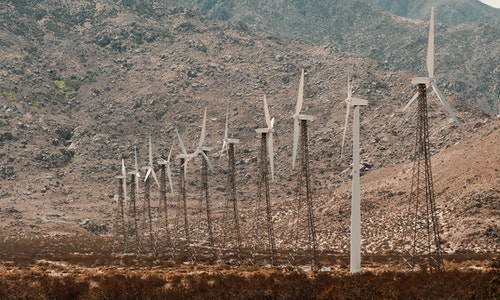Do you have a passion for the environment and working towards a green economy? Is your goal to make a vital contribution to tackling and solving the problems of climate change, renewable resources, environmental pollution, conservation for biodiversity and environmental management?
This course is a future-focused and solution-based programme in environmental sustainability and climate change. Designed with industry and taught by experts in their fields, this BSc (Hons) Environmental Science course puts you at the forefront of environmental innovation and change.
On this experience-rich degree course, you will develop a broad range of practical, laboratory, field-based and project skills, including through working with external organisations and companies to improve environmental sustainability locally, nationally, and globally.
The course will enable you to have a positive and transformational impact as you engage society, business and government in future solutions for environmental sustainable development. It will also help you to gain the skills and expertise required for a career in the green economy, as you aim to find solutions to the many challenges our environment faces.
What you will study
This course has been designed with industry to be employment-focused and will give you knowledge, training, and experience in all of the key sectors for meeting the environmental challenges of the future.
The degree is organised into a series of themes, each linking to an employment sector. These themes include climate change, renewable resources and energy, biodiversity and conservation, environmental pollution, sustainable development, and environmental management.
The degree themes directly target important sectors of employment in sustainability within government bodies and organisations, consultancies, industry, and non-government organisations. These include the principal areas of environmental-related employment in recycling and renewables, pollution and environmental monitoring, land remediation, carbon emissions reduction, future climate adaptations, conservation, and ecosystem solutions.
Each theme is introduced in the first year to provide a background to that area, topics are developed in more detail in the second year, and in the final year, they are applied to consider solutions and provide training for specific career pathways you may wish to pursue.
To learn more about our modules, watch this video.
Year 1
The Climate System
The module will introduce climate change. To understand it you will first consider the climate system and the Earth’s systems that affect atmospheric and climate processes, including atmospheric composition, circulation and weather systems. You will also study other areas that feed into the climate system, including the oceans, productivity in ecosystems and important geochemical cycles including the carbon cycle.
Resources and Materials
This will introduce you to our key natural resources, their use, extraction, sustainability, re-use/recycling, disposal and the concepts of a circular economy. It will include water resources, soil, construction materials, minerals and metals. It will consider the measurement of soil health and sustainable agriculture. It will also introduce material science, product design, reuse, recycling and separation technologies along with disposal and management.
Principles of Ecology
You will study population and community ecology, including population dynamics, strategies and habitat structure. The module will consider food webs, energy flow, biogeochemical cycles, trophic levels and pollution pressures, along with ecological successions, habitats, niches, microclimates and phenology. There will also be field and laboratory work, introducing practical identification skills.
Anthropocene
In this module you will study human activity impacts on natural systems (land, sea, air) and biota in the past, present and future. This will include landscape change, extinctions, large-scale resource extraction and exploitation, along with pollutants and contamination, including impacts on human health. You will then be able to consider the principles of environmental impact assessment.
The Sustainable Society
You will consider concepts of sustainable development and the challenges of integrating environmental, social and economic interests. This will include political ideologies and the way this has underpinned recent government thinking towards the economy, environment and society. Institutions, agencies, organisations and policies responsible for the delivery of sustainable development are considered from the global to the local scale.
Environmental Management and Skills Development
This module will develop your skills and experience, involved in multidisciplinary environmental site assessment and environmental impact assessments, developed as project work. This will develop your research and communication skills, allowing you to consider data generation and research methodologies. You will also be introduced to Geographical Information Systems to generate and visualise spatial data, and to consider locational data including using Global Positioning Systems.
Year 2
Climate Change
You will use a range of records of climate change to consider their natural and human-induced causes and understand the mechanisms for those changes. This will include larger and smaller-scale climate system shifts for a range of longer-term, abrupt and recent climate changes. You will also consider the consequences of those climate changes, including environmental and human impacts on different time scales, to consider recent impacts of climate changes against longer-term patterns.
Energy Systems
You will consider non-renewable and renewable energy systems. This will include conventional and unconventional hydrocarbon systems; nuclear energy systems and nuclear waste disposal; and geothermal energy including deep geothermal plants, ground source heating and cooling. It will also consider renewable energy technologies, resource assessment and utilisation, along with environmental impacts, including solar, wind, wave, tidal, biomass and hydrogen. You will also consider power storage and transmission, energy supply and demand and the reduction in energy demand through sustainable engineering and design.
Ecological & Wildlife Assessment
You will study the ecology and conservation of selected habitats and species of national and European importance, and consider biodiversity action plans, environmental policy and conservation assessment. You will consider ecological projects and information management from stakeholder consultation and other sources of biological information. Identification skills will be further developed for key taxonomic groups as part of biodiversity site appraisals and ecological assessments.
Environmental Contaminants: Detection and Remediation
This module will allow you to consider the detection, analysis, management and mitigation of environmental contaminants. You will be trained in contaminated land environmental impact assessment, including stages of site assessment, identification and characterisation of pollutant sources, sampling strategies and analytical methods. You will also consider various remediation strategies to manage contaminated environments.
Global Consumption
You will examine the centrality of consumption to everyday life and how it connects people and places across the world economically, socially, culturally, politically and environmentally. The relationship between spaces of production and consumption through interconnected networks from the local to global scale are explored and their environmental impact considered. These relations are assessed in relation to themes such as population changes, globalisation, economic trade and development, ethical consumption, alternative networks and waste.
Participatory Project Work
You will be involved in collaborative environmental and development projects with community groups, industrial or organisation partners. This will involve you in the design and implementation of projects and provide you with critical insight into breaking down the barriers (real and imagined) between industry, agencies, institutions, local government and the communities in which they are located and which they serve. It will develop your project management, teamwork, and leadership skills.
Optional year of study abroad, in industry or on a voluntary placement
Year 3
Climate Change Adaptation and Mitigation
In this module you will model future climate change scenarios and consider their impacts, risks management strategies and ways to develop resilience, including the needs, options, planning and implementation of adaptation strategies. You will also consider climate change mitigation, including current and future emissions reduction with carbon footprint reduction in a range of sectors including energy, transport, built environment, agriculture and industry. You will also consider carbon sequestration methods and holistic environmental management.
Resources of the Future
You will consider the material needs for a sustainable low-carbon future and future sustainability, including raw materials for the low carbon transition. This will include battery materials, supply and demand; mineral exploration and production, recycling and reprocessing. You will also consider material characterisation and analysis, recycling streams and the production of renewable materials.
Global Ecological Challenges
You will consider approaches to managing landscapes and species in response to global change, including future-proofing. This will include the importance of ecological networks and connectivity, habitat translocation, and the co-benefits of functioning ecological systems. You will be using biological indicators for the ecological monitoring of species and biological communities and identifying research needs in response to projected ecological changes.
Environmental Forensics
This module will use integrated case study and project work to provide you with training in gathering and managing data, including for environmental legal investigations. It will include aspects of environmental law and the role of environmental tools (botany, ecology, entomology, soil science, geology), crime scene sampling, analytical methods, the use of aerial imagery and drones, and methods for evidence reporting.
Sustainable Urban Futures
You will consider environmental and sustainability perspectives on the development of cities, including processes of social and cultural mobility, diversity and inclusion. This will include the key issues and political trajectories that shape contemporary urban spaces at the global, national and regional scale along with ways to manage increasing pressures associated with urban growth and renewal, with opportunities for improved future environmental management and solutions.
Independent Project
Your research project will be designed with full support from staff and will come from independent research or from a relevant industry, work or voluntary placement. It will allow you to develop a critical, in-depth analysis for an area of the course that most interests you, and further develop your project management skills.
Zobacz więcej na stronie uniwersytetu >>
Wiza studencka do Wielkiej Brytanii
Aby studiować w Wielkiej Brytanii potrzebujesz wizy studenckiej. Aby złożyć wniosek o taką wizę studencką musisz zdjać certyfikat językowy na poziomie B2.
Uważaj! Do celów wizowych musisz wybrać wyłącznie egzamin w wesji Secure English Language Test (SELT) UKVI .
Co to jest test SELT UK VI registration? Przeczytaj więcej o testach SELT UKVI >>











